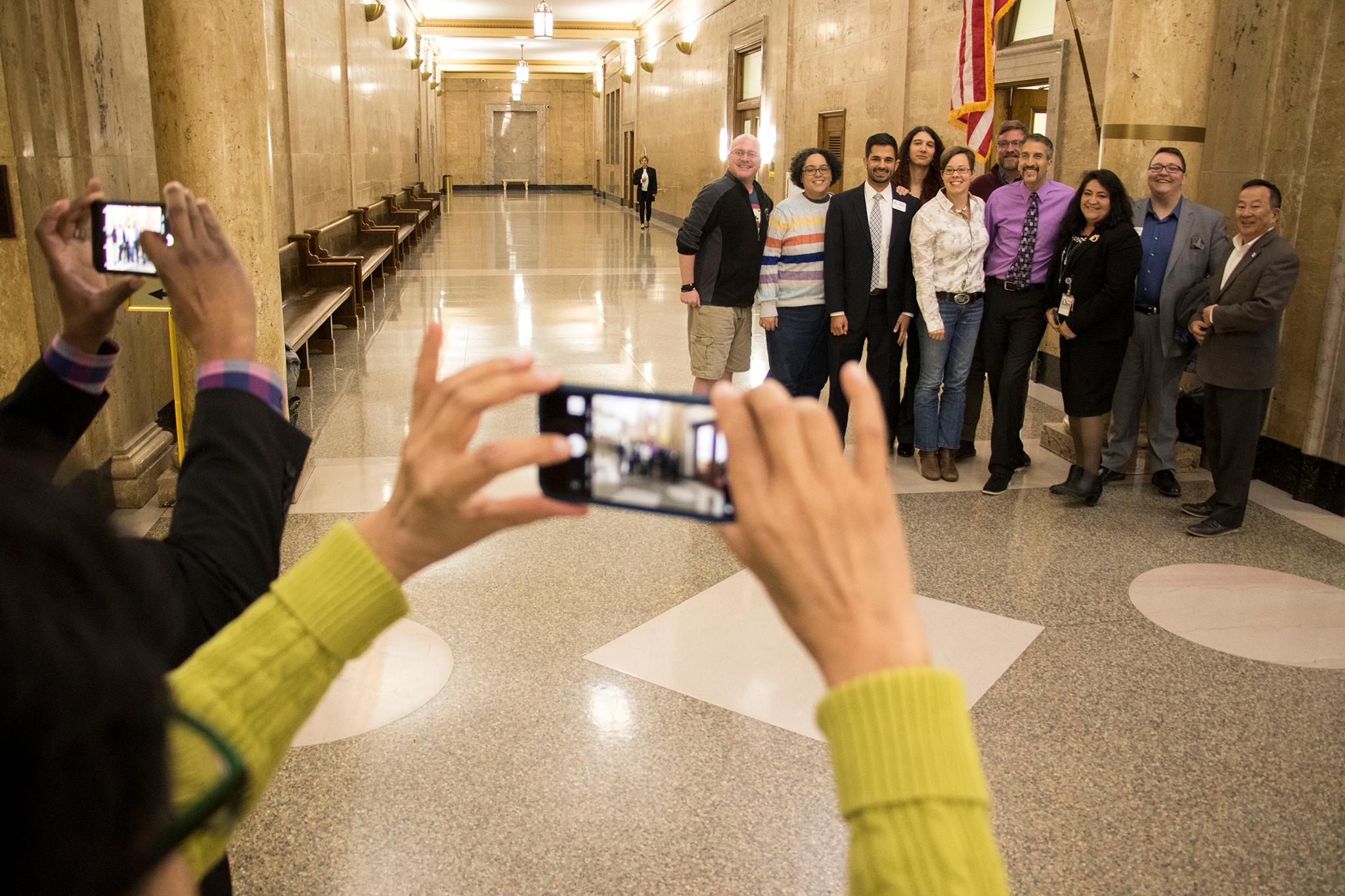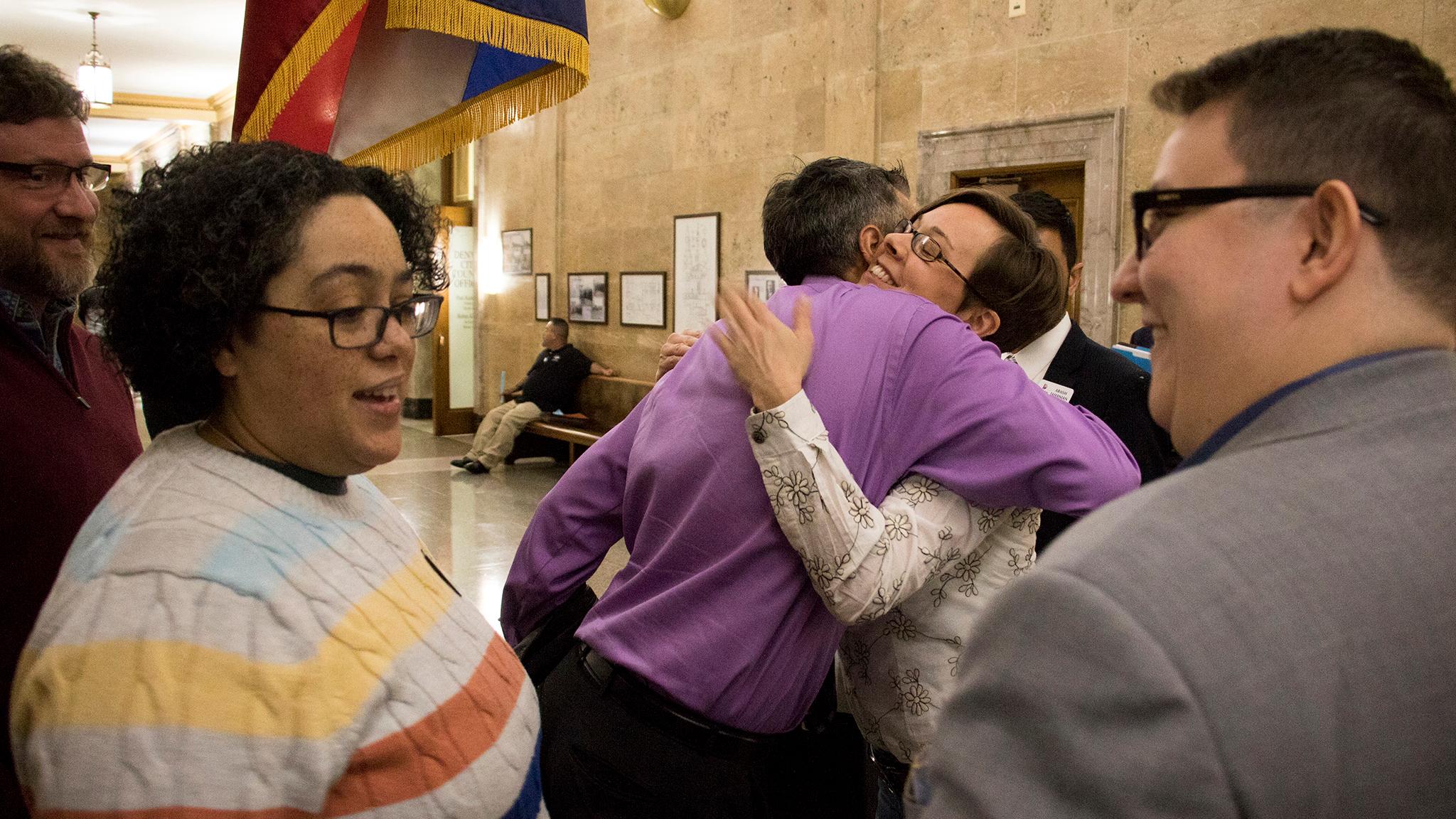The Denver City Council on Monday unanimously approved a ban on "conversion therapy," or the ill-fated attempt by adults to teach children -- through mentally and physically abusive means -- that their innate sexuality is a disorder that can be cured.
"It's child abuse at best, torture at worst," said Mike Taylor, a member of Denver's Lesbian, Gay, Bisexual, Transgender and Queer Commission, during a city council committee meeting last month.
Trying to "train" kids out of inherent parts of their identity is not only futile, it's harmful, experts say. Being forced to repress your true self can lead to depression, anxiety, drug use, homelessness and suicide, Taylor said. Then there are the physically abusive methods, which can include shocking children or giving them nausea-inducing drugs while showing them same-sex pornography.
"If people perceive that some aspect of themselves is wrong or shameful or frowned upon, they're more likely to repress it," said Dr. Sarah Bergamy, a developmental psychologist who specializes in sexual and gender identity. "That doesn't mean it goes away. That means it gets repressed. That's when we see symptoms of depression and anxiety."

The American Psychiatric Association deemed the practice bunk in 1973. Officials are unaware of any practitioners of the so-called therapy within city limits, but hope banning the practice encourages people to come forward who might otherwise hold back.
The law, sponsored by City Councilwoman Robin Kniech and City Council President Jolon Clark, aligns Denver with 47 cities, 14 states and nine countries. It hits home for Kniech. She came out in her early 20s.
"It isn't easy to be someone different than the world expected you to be -- to love or want to be with someone that you were never told about in the fairy-tales that were read to you," Kniech said at last week's legislative meeting. "Loving someone does not make you sick, physically or mentally... But shame and rejection make people sick -- shame and rejection that teach you that if you fail to meet the expectations your religion or your family or your community has, that you are wrong and that you don't belong."
The Interfaith Alliance of Colorado put its full support behind the law. That's significant because religious beliefs are sometimes behind the myth of conversion therapy.
"As a Christian and a pastor and a mother, I believe that everyone is created in the image of God, loved and beautiful just how they are," said Rev. Amanda Henderson, executive director of the Interfaith Alliance. "Naming a person's gender or sex as a sin or a source of brokenness is painful and violent and has life-or-death consequences."
The practice remains legal in Colorado, but not for long, if Arash Jahanian has anything to say about it. The chair of Denver's LGBTQ Commission hopes the municipal law leads to changes at the Colorado legislature this year, now that it's under Democratic control. Republicans have killed bills to ban the practice four years straight.













